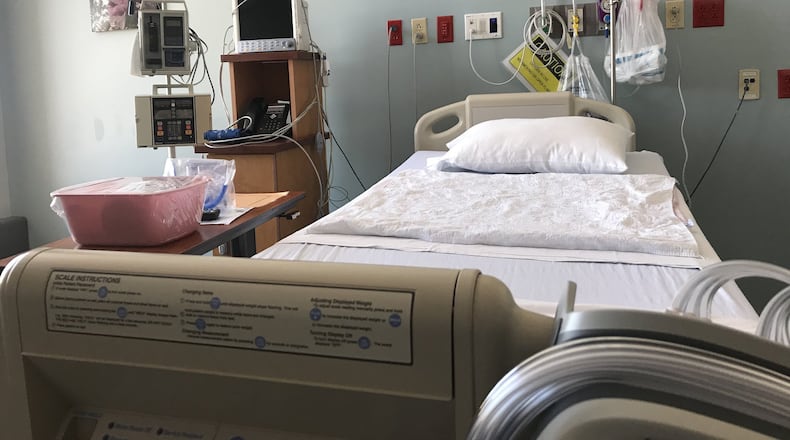While Ohio hospitals aren’t licensed, they are already regulated for patient safety and quality in other ways. But a licensing program means new ways to hold hospitals accountable and to require data sharing.
“This allows ODH to develop a licensure program that would give the state a unique opportunity to create a regulatory culture of partnership, technical assistance, shared best practices, and proactive cooperation with our hospitals,”said Alicia Shoults, spokeswoman for Ohio Department of Health.
The law goes into effect 90 days from the governor’s signature and from there, ODH has a year to put rules in place, Shoults said. After that, hospitals have three years to be licensed. That will allow a phase-in process, and licenses will be valid for three years.
Columbus case precedes action
Two years ago, the DeWine administration said it was exploring the idea of licensing hospital or other options for increased oversight.
That came in the wake of a Columbus case when a former Mount Carmel Health System physician was accused of providing excessive and sometimes fatal doses of painkillers to patients. He was indicted on 25 murder charges but his legal team has disputed the accusations.
More recently, such as during the pandemic, Ohio officials could request data, such as bed and ventilator counts. The state received some cooperation from hospitals on sharing data, but was limited in what it could demand. A licensing system is also a way for the state to require data sharing.
Loren Anthes, researcher with Cleveland-based human services think tank Center for Community Solutions, said licensure is important because it will create better standards for the public to understand comparative performance and quality data.
While hospitals weren’t licensed before this, they also weren’t unregulated. Most already get accredited by a third party such as the Joint Commission and each year they have to register with the state. Watchdog agencies also exist, like the U.S. Department of Health and Human Services’ inspector general and office for civil rights.
“This doesn’t mean that hospitals in Ohio weren’t highly monitored,” Sarah Hackenbracht, CEO of the Greater Dayton Area Hospital Association, said of the state planning to license hospitals. “This is a transition of the current law to a licensure process.”
Additionally, individual practitioners like doctors, nurses and more are professionally licensed. Also, some parts of the hospital network are licensed, like maternity units.
Anthes said licensing the hospitals as a whole “recognizes the fact that hospitals, as an entity, are gaining prominence as the way that we receive services.”
When the DeWine administration first floated the idea of licensing, hospital leaders raised concerns about potential unintended consequences that could come from hospitals devoting resources to new regulation on top of existing regulation.
But the Ohio Hospital Association has been in conversation with the state in the lead-up to the change, and spokesman John Palmer said that the association supports the program passed in the recent state budget.
The detailed rules for the program still need to be hammered out.
“We look ahead to the rule-making process with the Ohio Department of Health. We hope this will build on the cooperative working relationship we have with the Ohio Department of Health,” Palmer said. “This past year and a half we worked very productively with ODH and other state agencies to manage the COVID-19 pandemic in Ohio.”
About the Author

